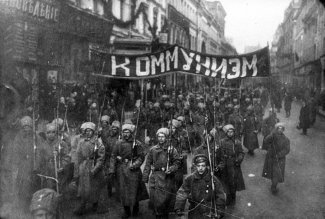With their recent criticism of the potential abuses of artificial intelligence in content protected by authors’ rights, unions representing authors, actors and screenwriters have rekindled a debate on the importance of creators, particularly journalists, knowing their rights and protecting the use of their work.
“When my former employer talked to me about my author’s rights, I have to admit I didn’t even pay attention,” says Fleur D. (who wishes to remain anonymous), a French journalist who worked for a long time as a freelancer before being given a permanent contract.
This is a fairly common reaction for journalists when asked about their author’s rights. “I’ve never given it too much thought, but I know that that’s the problem,” says Natalia Q., a freelance journalist from Spain.
There are several reasons for this lack of interest. The first is the technical jargon surrounding authors’ rights: terms like ‘moral rights,’ ‘property rights,’ ‘transfer of rights,’ ‘license,’ ‘exclusivity’ and ‘non-exclusivity’ don’t exactly inspire interest.
The second reason is a feeling of helplessness. Journalists are often faced with non-negotiable contracts (to the extent that they have a contract at all). There is also a significant power imbalance between the two parties involved: on one side is the employer, backed by an army of lawyers; on the other side is the journalist, often alone.
Lastly, and paradoxically, knowledge of journalists’ authors’ rights is not as widespread as the understanding of the rights of other creators. People are more likely to ask permission to use a photo or video on YouTube than they are to ask permission to use a text.
“Al Arabiya organised a workshop on copyright to educate us on the rights of other creators,” recalls Nouredin Lafridi, Al Arabiya’s Brussels bureau chief. “It was first time in more than 30 years that anyone has talked to me about authors’ rights for journalists,” he confides.
In a profession subject to strong economic pressures, in which freelancers throughout the world struggle to make ends meet, authors’ rights remain a luxury.
A guarantee of quality and professionalism
From Buenos Aires to Sydney to Dakar, the regional offices of the International Federation of Journalists (IFJ) are unanimous and categorical: at a time when precariousness, contractual insecurity and wage arrears, not to mention intimidation and violence, are a daily problem, authors’ rights are not a crucial issue for journalist unions. Only the European Federation of Journalists (EFJ), the IFJ’s European group, has made the issue one of its priorities.
However, the fact of creating an original work (an article, a photograph, an audio report) does grant rights to its author, whether they are a freelance or employed journalist. These are known as moral and economic rights. “The genre of the work is irrelevant,” as the Belgian Association of Professional Journalists (AJP) explains on its website. “You can thus receive author’s rights income for an editorial, a review, a report, a short story, etc.”.
Being recognised as an author should not be the exclusive privilege of creative writers, especially against a backdrop of fake news, where a journalist’s signature is a guarantee of quality and professionalism.
Journalists should have the right to sign off on a story and object to changes imposed by different ‘partnerships,’ or the demands of a media group’s shareholders. This is the underlying principle of moral rights, the non-pecuniary part of authors’ rights that binds authors to their work.
The right to receive additional remuneration should apply naturally when reports are used beyond the context of their media commission, particularly when they are reused in different media of the same group or sold to third parties. This is the economic component of authors’ rights, known in the jargon as ‘economic rights’.
In Kenya, major press groups such as the Nation Media Group and The Standard have been widely criticised by their journalists and their union representatives for using their articles in other group media without providing additional remuneration.
The same is true in Australia. “Freelance journalists, who in theory own their authors’ rights, in practice often grant them to their employers, who demand these right before employing them,” says Adam Portelli, deputy general manager of the Media Entertainment and Arts Alliance (MEAA), the IFJ’s Australian affiliate.
Employers secure these rights for themselves by means of standard contracts providing for a total transfer of authors’ rights for an unlimited period and on all media. This makes it impossible to claim additional remuneration for any new use of a work.
Legislation and collective agreements for more protection
However, an original solution for protecting journalists working in print media was launched in France in 2009 as part of the so-called ‘Hadopi’ legislation. Rights are transferred via company or industry agreements to the various media for a reference period determined by a collective agreement. This period generally corresponds to the normal period of use of an article, for which the only compensation is wages. Beyond this period, remuneration must be paid to journalists.
Protective legislation is the best guarantee of fair contracts that take contractual imbalance into account. In the absence of such legislation, however, collective agreements can also alleviate the problem by inserting protective provisions for journalists.
For those who wish to find out if their contract respects authors’ rights, the AJP provides some useful advice [in French] on its website. “The contract must […] expressly include, for each mode of use, the remuneration, scope and duration of the transfer”.
Journalists can also ask their colleagues about the content of their contracts, in particular about the content of clauses relating to authors’ rights, and check whether they entail an unlimited transfer of rights.
It is difficult to act alone to renegotiate a clause that has become standard practice in all editorial departments. Journalists should talk to their unions to ensure that the issue is dealt with collectively, without isolating individual journalists. This will be more effective and more likely to result in a genuine contractual change.












